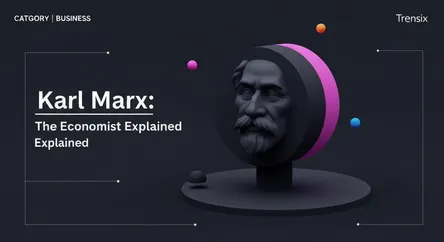Business
Karl Marx: The Economist Explained

Explore the ideas of Karl Marx, the influential philosopher and economist. Understand his critique of capitalism, class struggle, and its modern relevance.
What is it?
Karl Marx was a German philosopher and economist whose ideas, collectively known as Marxism, form a fundamental critique of capitalism. He argued history is defined by class struggle—the conflict between the ruling class (bourgeoisie) that owns capital and the working class (proletariat) that sells its labor. In works like Das Kapital, he detailed how capitalism leads to worker exploitation and alienation. Marx predicted these inherent tensions would eventually lead to a revolution and the establishment of a classless, communist society.
Why is it trending?
Marx remains relevant in discussions about rising wealth inequality, precarious work in the gig economy, and recurring financial crises. His theories provide a powerful framework for understanding why economic disparities grow and how corporate power concentrates. As labor movements gain new momentum and activists challenge systemic injustice, Marx's critiques are frequently invoked to explain the root causes of modern economic problems, keeping his name prominent in political and social discourse.
How does it affect people?
Marx’s theories have directly influenced political movements, labor rights, and social welfare systems across the globe. For many people, his concepts like "alienation" articulate a sense of disconnection from their jobs and the products they create. His analysis empowers unions and social activists in their fights for better wages, working conditions, and corporate accountability. Ultimately, his ideas continue to shape the ongoing debate about economic fairness and the fundamental structure of society.